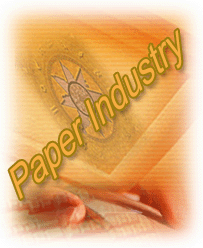 |
| Art and news, intersecting in the Digital Age |
|
http://www.sbdailynews.com
2011-02-22 New York Times |
|
NEW YORK — After steady assault from Twitter, Facebook and Blogger Nation, we have come to this: "The Last Newspaper." Or so the title of the New Museum's fall show seems to tell us. In reality the situation isn't quite that dire.
"The Last Newspaper" is far less about trashing the printed word than about recycling and repurposing it as, or at least in, art. As if in a vote of confidence, the exhibition will be producing two tabloids during its run through January 9, one of them a museum commission.
The idea behind the exhibition — print journalism as a visual and existential phenomenon — is timely, and specific enough to be addressed and illustrated through art. Is the phenomenon intrinsically phemeral or monumental? Is it truth telling or illusion spinning? One asks the same questions of art.
One also asks: Who has the power to write the news, or make art, and by extension to create history? What are the similarities between newspapers and museums? To what degree are both responsible for providing social information as well as entertainment?
If the show does nothing else, it demonstrates how widely and variously newspapers have served as raw material for contemporary art, old and new.In a collage from 1967 by Judith Bernstein called "Are You Running With Me Jesus?" newspaper clips are preserved as if in a reliquary, framed and sealed behind glass. The main collage components are a frayed patch of American flag and cutout news shots of urban race wars. All surfaces are covered with handwritten political comments and obscene ditties. The result is like a time-capsule version of a splenetic blog rant.
Three 1986 drawings by Adrian Piper, collectively called "Vanilla Nightmares," are done directly on pages of The New York Times carrying articles with a racial content.
William Pope.L restages his "Eating The Wall Street Journal," a 2000 performance in which he slowly devoured pages from that paper. The New Museum has assigned the gustatory chores to assistants wearing Barack Obama masks.
Other artists physically edit existing newsprint. For a continuing project called "Truth Study Center," Wolfgang Tillmans cuts articles from newspapers and magazines and displays them with his own photographs to create complicated, and moving, broad-spectrum stories about political and religious violence.
For a sculptural installation, Thomas Hirschhorn, departing from his customary shock-and-awe mode, dresses fashion mannequins in gowns stitched together from news photographs, with each gown made from images of a single subject: stockexchange workers, dead soldiers, rich foods, slicedup phrases from global advertising.
But the exhibition's titular focus is the continuing life of print journalism, and that is indeed alive here. A large-format tabloid called New City Reader, conceived for the occasion by Joseph Grima, editorial director of Domus, and Kazys Varnelis, director of the Network Architecture Lab at Columbia University, approaches news as a species of creative nonfiction.
Its graphically remarkable first issue reimagines a news-about-news event from more than 30 years ago, when, under severe technological duress, The New York Times managed to get a paper out on the night of the 1977 citywide blackout.
And at the behest of the New Museum, a printsavvy group called Latitudes from Barcelona is issuing another tabloid that will double as an exhibition catalog. That publication would be the ideal place for the curators and participating artists to go on the record, at un-Twitterish length and polemical breadth, about the viability of analog journalism — and analog art — in the digital age.
Such a document would help ground an exhibition that can too easily float around themes rather than land on them. And it would help confirm the commitment of a museum to being a center for hard thought as well as for entertainment. |
| |
|
|
|


